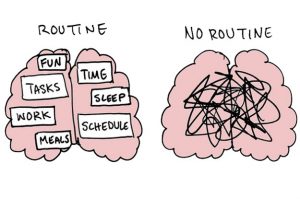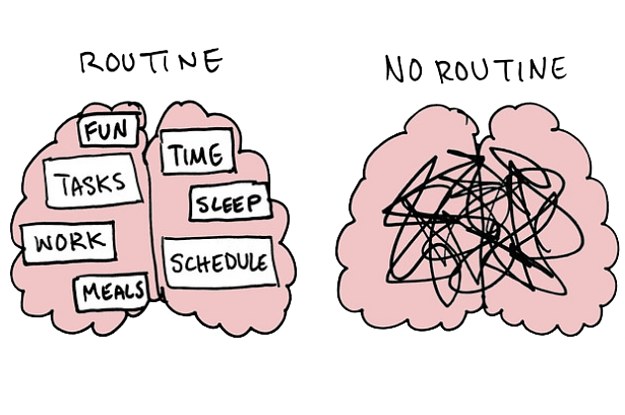
My whole life has been a blur of hyperactivity and energy. I was loud; the centre of attention in every way. Academics, surprisingly, came easy for me. I coasted through elementary and middle school, wowing teachers with my focus and determination. I was halfway through high school when the depression started. Suddenly, I was daydreaming during class, flunking tests, not talking to anyone. At 18, I was diagnosed with ADHD.
In this series, I want to explore physical and mental/invisible disabilities. First up is Attention Deficit Hyperactive Disorder (ADHD). The debates on ADHD range from whether it’s real or made up pseudoscientific bullshit to whether to medicate or not. No one ever talks about what happens after they drop the bomb on you. What next? How do we cope with this “intellectual disability”?
What we’ve all been told is that ADHD is a problem. That adults and kids with ADHD are “broken” to some degree, they have something wrong with them. Truth is, ADHD is a simple condition to understand because it’s the net effect of other challenges, instead of an entity all on its own. Kids and adults with ADHD undoubtedly have what I like to call “Porsche brains” — meaning their brains like to go fast, and therefore are basically stuck on the “gas” at all times. This element is the key to their superpowers. Fast cars can get places faster, effectively getting more things done in the same amount of time as other cars. That’s why so many of our great innovators, inventors, artists, and entertainers fit the ADHD description.
If you’ve ever taken a look at a Porsche up close, sure, it has a huge engine (brain), but it also has very large brakes, and a sophisticated handling and suspension system. Put another way, because a Porsche can go very fast, it must also be able to slow down really fast and be able to handle corners really fast. A child or adult with ADHD has one piece of that formula, but not both. They have fast-moving brains that constantly want to be on the go, but they have small brakes and poor handling.
In my day-to-day life, this means I have trouble slowing down and sitting still when needed. I have difficulty paying attention in more slow-moving environments (math class, meetings, etc.), especially heavy lectures. In first year, I found myself falling asleep as soon as the class got to work. I had a tough time transitioning from one activity or subject to another.
It can be challenging trying to find the time and ability to focus, and really retain the content, because my brain feels like it’s stuck in mud half the time. Stress, which is inevitable at any university, just adds to the overwhelming feeling of drowning in information. So how can we better cope with stress, school, work, and the constantly changing demands of life? Drugs are not the only answer and option.
I think there’s a huge disconnect between medication and treatment. I think of ADHD as being the same as someone who needs glasses. It’s not a bad thing, it just is. There’s so many amazing ways you can “treat” ADHD, such as meditation, working out in the morning, and eating a clean diet. For me, the biggest help was learning about myself, and what environments I work best in, and then attempting to bend life to my will. Knowing my strengths and weaknesses helps me navigate through university slowly, but surely.
I never looked at ADHD like it was a disability, and if anything, I really do believe that it’s a super power, it’s an enhancement and it’s a part of who I am.



I completely relate to this. I was recently diagnosed… but in my 40’s! I had a similar school experience as well, with incredible success and ease of acquiring knowledge until my final year of high school. I stopped my education there, although i was a voracious reader of things that specifically interested me. And I did well in my career path, but not without many setbacks that I can now trace to the myriad of side effects of having ADHD. Mostly, i was unawares of the social implications, stress, and oversharing that are symptomatic, and have required a lifetime of learning to control. Thank you for this blog, it helped me feel less alone:)
Pete, your comment made my day. There are not many people in my life who can relate to my experiences, and knowing I helped you feel less alone makes sharing worth it. Hope you’re doing alright!
I was diagnosed with ADHD when I was like 8 or 9.
I don’t consider it as a “disorder” either, but as someone that really needs a ton a patience and tolerance.
I think you had a better case than me. I was a wild kid, with volcanic tempers that I had no control of. Going through emotional roller coasters every single day is definitely no fun.
However, I appreciated that I was able to think philosophically quite a lot, compared to now I seem just stupid.
…
Sincerely Idk what to say… You know what I mean.
Sincerely.
Oh my god.. i never really thought i would ever get to read something like this. I have never been diagnosed with ADHD , i never went to a doctor for the help. Nobody knows as i never shared this with anyone. I was perfectly fine till the age of 15 but after that it has been all a hell of hyperactivity. Somehow i have been able to keep good academics but it takes 100 times more effort for me to concentrate at one place at one time. I always feel like there are literally explosion of thoughts in my brain and i just cant put them at halt. My parents are not much educated and we just barely manage to have enough for our our daily needs so i cant afford a treatment from a good doctor and above that i dont want to freak out my parents as they are already struggling with their issues. I think about multiple things at one time and switch thoughts in seconds i am a complete pro in that, i even create a virtual world with virtual people inside my head and spend my time there. Even while sleeping i have multiple kind of dreams , my brain sometimes feel so fatigued but i just dont have the break. I am so thankful that i got to read some positive stuff about my condition ..Thankyou so much you all.
Dana, thank you so much for your comment. It’s the reason I keep writing, and the reason that something like Student Life exists, to help other people in need. I wish you the best on your journey through this challenge, please feel free to reach out if need be.